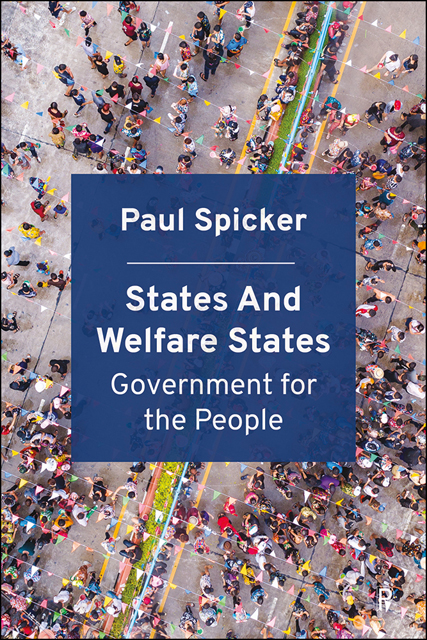7 - Welfare
Published online by Cambridge University Press: 20 June 2023
Summary
Summary
Competing interpretations of welfare may be based on individual decisions, needs, the avoidance of poverty or deprivation, the sum of individual welfares, common ground or ‘collective consequentialism’, and the ‘common good’ or good of society. However, the areas provided for as ‘social welfare’ are conventional and often miss important elements of people’s well-being. Every system of welfare leaves gaps.
‘Welfare’ or well-being is often translated into a specific set of issues, such as health or command over resources, because that is a practical way of pinning it down. It is, however, a vague, elusive concept. Welfare might be material; it might be subjective; it might be socially defined, or otherwise external to the person.
Welfare as a matter for individuals
There are many approaches to understanding people’s individual interests, and all have their weaknesses. Some definitions are subjective, based on people’s happiness or subjective well-being; that might be identified by asking people, looking for ‘inter-subjective’ tests that are shared between people socially, or perhaps by looking at some indicator of contentment, such as health. There are definitions based on what people want, or perhaps what they choose: what people choose, the economists’ proxy for ‘utility’, might be based not on personal preferences, but on established patterns of behaviour. There are normative tests, based on some kind of external standard. There are comparative standards, which consider only people’s circumstances by comparison with the things that other people have. And there are consequentialist understandings, which focus on the outcomes that follow from an action. There is always, Robeyns argues, an ‘irreducible plurality’ of issues.
Hayek argued that people have to be allowed to judge their well-being for themselves. He put it this way:
The presumption that each man knows his interests best … is neither plausible nor necessary for the individualist’s conclusions. The true basis of his argument is that nobody can know who knows best and that the only way by which we can find out is through a social process in which everybody is allowed to try and see what he can do.
Liberty, in the sense of the absence of interference with individual actions, is both a precondition for individuals to be able to exercise choice, and a form of welfare in its own right.
- Type
- Chapter
- Information
- States and Welfare StatesGovernment for the People, pp. 83 - 96Publisher: Bristol University PressPrint publication year: 2022



